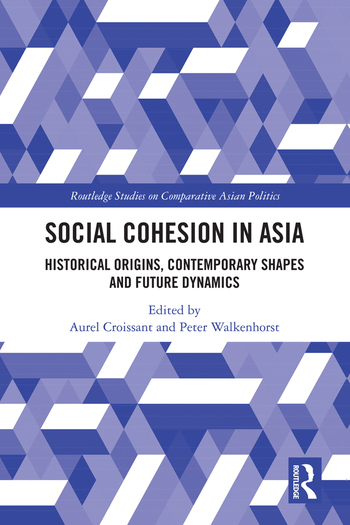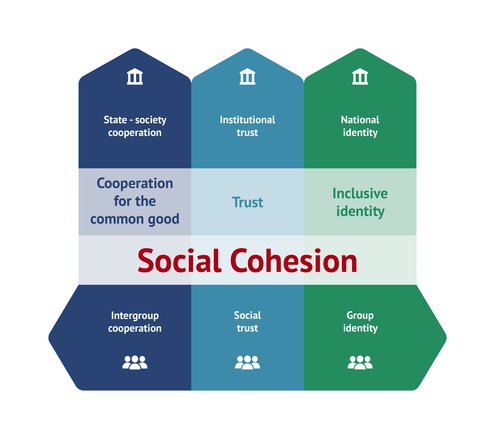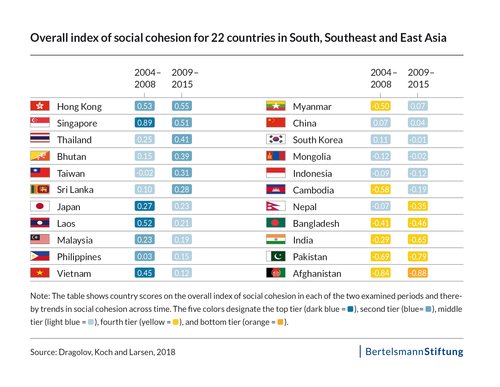Social Cohesion in Asia Historical Origins, Contemporary Shapes and Future Dynamics
Key facts
Identity/feeling of belonging
Participation
Equality/Inequality
Orientation towards the common good
Solidarity
Shared values
Cooperation
Tolerance
Connectedness
East Asia and Pacific
Social protection
Flight & migration
Economic development
Political institutions & governance
Inequality
Concept & measurement
Summary
The book explores the historical origins, contemporary dynamics and future challenges of social cohesion in eight countries in South, Southeast and East Asia (SSEA). It includes comparative country case studies on China, Singapore, South Korea, India, Bangladesh, Indonesia, Myanmar and Sri Lanka, that examine how social cohesion is understood, analyzed and, sometimes, politically instrumentalized. The country cases also discuss current and future challenges of social cohesion in the individual societies.
The book builds on the concept and empirical findings of the Asian Social Cohesion Radar, a previous research endeavor, that provided detailed cross-country analyses of social cohesion in Asia. The country case studies investigate aspects of social cohesion in SSEA that the previous study was not able to explore or identify, like, for example, the level of variation across different socio-demographic groups or geographical units within countries.

Explore the hub further




